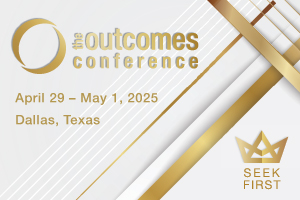
4 Common Beliefs That Hinder Hiring Decisions By Dr. Ken Bryne & Rev Peter Corney

Beliefs Influence Hiring Decisions!
We all have beliefs that guide our behavior. Some of these are conscious, and others are less so. This paper outlines four commonly held beliefs that will likely impair our ability to make good hiring decisions.
And they replied, “Believe in the Lord Jesus, and you will be saved, along with your entire household.”
Acts 16:31
Definitions
A belief is a confidence in the truth or existence of something that is not immediately susceptible to rigorous testing. For example, some people believe others will quickly take advantage of you if given the opportunity. Others believe that strangers are friends we haven’t yet met.
There may be some truth in each of these statements. How much will vary depending on the person and the circumstances? However, there is no way to prove the accuracy of these beliefs.
Contrast these to confidence in the existence of gravity, something that can be tested and proven.
Potentially Problematic Beliefs
(1) Successful people go on being successful.
We commonly assume that past successes will carry over into a new job, and this assumption is often given too much weight in the selection decision.
What is often missing is a careful analysis of how the new role is different. This includes considering what was not required in the past job.
A candidate for senior pastor had been quite successful in running a small country church. It was assumed that their same leadership gifts would flourish in a somewhat larger one.
What was missed was the expectation that success here would be achieved through managing a small staff.
The candidate had little skill at this. His past success was partly based on his ability to “do everything.” He initially struggled badly when required to get results by managing others.
(2) I’m a good judge of character.
While this may be generally true, the average Christian leader often has little idea of the kind of person they are looking for when selecting staff. This leaves them ill-equipped to know what questions to ask or how to interpret the meaning of the answers they receive.
Confidence in being a good judge of character often leads to an unstructured interview. This is the “casual chat” without any real focus.
Fifty years of psychological research have repeatedly proven that this is the least accurate way to make a hiring decision.
While “gut feel” is an important part of the process, it is not a substitute for thorough, professional work.
(3) We guard against hiring mistakes by having several people evaluate the candidate.
The success of this strategy depends on the skill of the chosen people.
Having several people who are poor judges of character—or even one, for that matter—can build a false sense of security. Group decisions can be just as bad as those made by a single person.
This approach also opens the way for a decision based on voting.
If four people interview a candidate, and three recommend that they should be hired, then the data obtained by the fourth person is ignored. This is a serious mistake.
In most cases, this means that the fourth person has access to something in the candidate’s character that the other three missed. In group decisions, the committee must reach a shared agreement.
(4) References can be a valuable source of information.
When properly interviewed, the referee can give insight into how this candidate has dealt with challenges in a past role. Often, this will reveal information that has remained hidden thus far.
On the other hand, it is important to remember what a referee cannot do.
We ask the referee to predict how someone they know will perform in a new job in an entirely new culture, which the referee may not fully understand.
We implicitly expect the referee to be able to predict the future. And make no mistake about it: When hiring someone, we attempt to predict the future.
A Better Approach
Awareness is the first step in reducing the likelihood that these beliefs will uncritically influence a hiring decision. Consciously knowing they exist can be a powerful antidote to being led astray.
The second step is to use a Structured Selection Process. This means having a systematic approach to evaluating all job candidates.
This requires developing an overall plan for gaining as much information about each candidate as possible before the appointment. A series of questions is designed for a particular job. Every candidate is posed the same questions. Depending on the answer obtained, the follow-up questions will probably be different.
Summary
Hiring the right people is the most important task any leader can do. Yet, it is almost unavoidable to look for ways to introduce shortcuts.
The beliefs outlined in this paper present an appealing way to make things easier and quicker. In most cases, they will lead us astray. When selecting future leaders of our Church, there is simply no room for shortcuts.
####
This material is adapted by permission from Hire Right the First Time: A Practical Guide for Christian Organisations, which is available from Amazon. Rev. Peter Corney and Dr. Ken Byrne co-authored this book.
- Rev Peter Corney is an Anglican minister who has been actively involved in writing, teaching, and leadership development for Christian ministers for the past sixty years.
- Dr. Ken Byrne has been an independent organizational psychologist for over forty years.
Enjoy the Fall edition of Outcomes Magazine – Discover the significance of influence!
START READING HERE!





